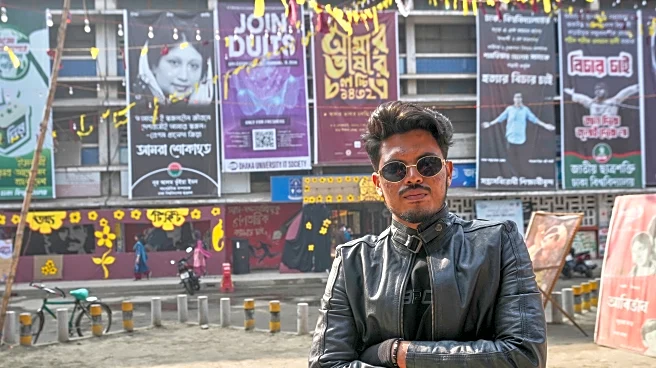What's Happening?
A South Korean court has ordered a social media user to pay 500,000 won for defaming the virtual K-pop boyband Plave. The group, consisting of animated characters voiced by real performers, was targeted in derogatory online posts. The court ruled that attacks on avatars, widely recognized to represent real individuals, extend to the performers behind them. Plave's agency, Vlast, initially sought higher damages, citing emotional distress caused to the performers. The ruling sets a precedent for defamation cases involving virtual characters in South Korea's entertainment industry.
Why It's Important?
This case marks a significant development in the legal treatment of virtual characters, reflecting the growing influence of digital avatars in entertainment. It raises questions about the boundaries of free speech and defamation in the context of virtual identities. The ruling could impact how virtual celebrities are protected under the law, influencing future cases and the rights of performers behind digital personas. As virtual idols become more prevalent, this decision may shape industry standards and the legal framework surrounding digital entertainment.
Beyond the Headlines
The case highlights ethical considerations in the use of virtual avatars, including the potential for reduced scrutiny on human performers. It also points to cultural shifts in entertainment, where digital characters are increasingly accepted and celebrated. The ruling may encourage further exploration of virtual identities and their implications for privacy, representation, and emotional well-being.












